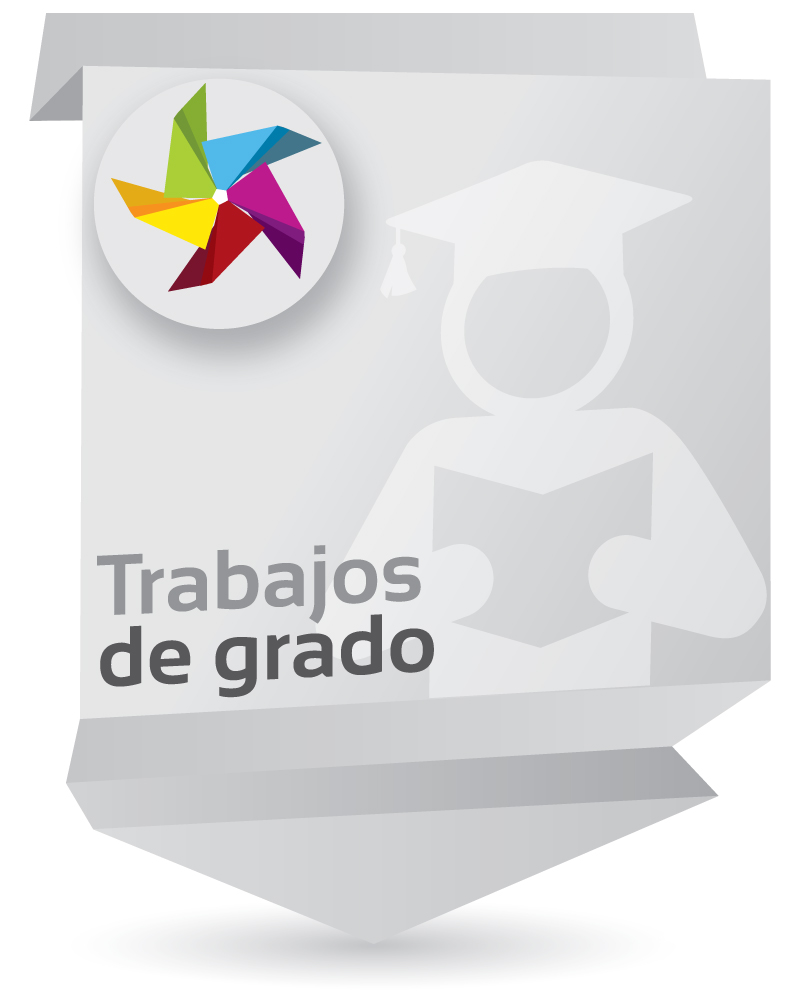Propuesta para fortalecer la autonomía intelectual en los estudiantes del grado sexto del Colegio El Rosario, con el fin de fomentar compromiso frente a su proceso formativo y académico
Enlaces del Item
URI: http://hdl.handle.net/10818/52736Compartir
Estadísticas
Ver Estadísticas de usoMétricas
Catalogación bibliográfica
Mostrar el registro completo del ítemAutor/es
Molina Durango, Sandy PaolaAsesor/es
Pedraza Ortiz, Alexandra PatriciaFecha
2022-10-25Resumen
El objetivo de esta investigación fue diseñar una propuesta de intervención orientada en el fortalecimiento de la autonomía intelectual en los estudiantes del grado sexto de ASPAEN Colegio El Rosario, mediante la articulación del Plan de Formación, con el fin de fomentar compromiso frente a su proceso formativo y académico. El marco teórico está basado en conceptos esenciales que dan soporte a esta investigación, tales como, autonomía, autonomía intelectual, los alcances del contexto sociocultural en el desarrollo de la autonomía intelectual, componentes que integran la autonomía, estrategias metacognitivas, estrategias sociales y estrategias afectivas. La metodología se centró en la investigación acción educativa, a través de un enfoque cualitativo. Durante este proceso se implementó el espiral de ciclos de investigación y acción constituidos por cuatro fases importantes: planificar, actuar, observar y reflexionar. La aplicación de cada una de estas fases permitió ratificar, ajustar y transformar el proceso para llegar a tener una relación más estrecha con la teoría y la práctica. Mediante la aplicación de una encuesta a padres de familia y estudiantes, fue posible realizar un diagnóstico acerca de la dinámica familiar e identificar el control que ejercen los estudiantes sobre su conducta a partir de las prácticas de gestión del aprendizaje, desde las dimensiones metacognitivas y socio-afectivas. The purpose of this research was to design an intervention proposal aimed at strengthening
intellectual autonomy in sixth graders from ASPAEN Colegio El Rosario, through the
articulation of the training plan, in order to foster students’ engagement in their training process
and academic.
The theoretical framework is based on essential concepts that support this research, such
as autonomy, intellectual autonomy, the scopes of the sociocultural context in the development
of intellectual autonomy, components that integrate autonomy, metacognitive strategies, social
strategies and affective strategies.
The methodology focused on educational action research, through a qualitative approach.
During this process, the spiral of research and action cycles was implemented, consisting of four
important phases: plan, act, observe and reflect. The application of each of these phases made it
possible to corroborate, adjust and transform the process in order to have a closer relationship
with the theory and practice.
Through the application of a survey to parents and students, it was possible to make a
diagnosis of family dynamics and identify the control exercised by students over their behavior
based on learning management practices, from the metacognitive and socio-affective dimensions.
We identified certain situations that were inhibiting in the proper development of
autonomy, such as lack of responsibility and commitment, lack of motivation, lack of planning
schedules for the organization of time, lack of habits or methods for learning, lack of initiative to consult or support in other sources or people, parents or tutors who do the activities for the
students, hindering the value of the responsibility of students with their duties.
Definitely, the strategies implemented in the action plan proposal contributed to the
strengthening of the intellectual autonomy of sixth graders, where there were important
advances, which were reflected in the way students acted and in their daily actions, contributing
to their integral formation.













![pdf [PDF]](/themes/unisabana//images/mimes/pdf.png) Ver documento en PDF (1.330Mb)
Ver documento en PDF (1.330Mb)




